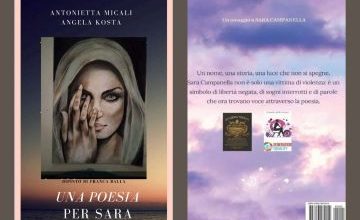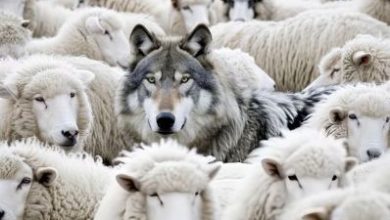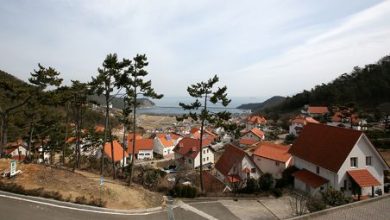The Other Shore – Poetry from China
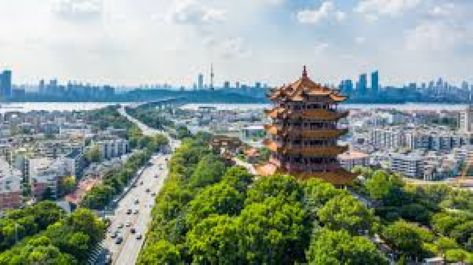
I see clearly the other shore of this life’s sorrow,
I chase after it. It’s not that there is no bridge…
Li Jianchun is a poet and critic from China
 Li Jianchun, a poet and critic, was born in 1970. He graduated with a bachelor’s degree from the Department of Chinese Language and Literature at Wuhan University in 1992. Currently, he serves as an associate professor at the School of Art and Humanities of Hubei Institute of Fine Arts and a member of the 11th Council of Hubei Federation of Literary and Art Circles. His works include a poetry collection Selected Poems of Li Jianchun and a monograph on art criticism The Semantics of Contemporary Art, among others.
Li Jianchun, a poet and critic, was born in 1970. He graduated with a bachelor’s degree from the Department of Chinese Language and Literature at Wuhan University in 1992. Currently, he serves as an associate professor at the School of Art and Humanities of Hubei Institute of Fine Arts and a member of the 11th Council of Hubei Federation of Literary and Art Circles. His works include a poetry collection Selected Poems of Li Jianchun and a monograph on art criticism The Semantics of Contemporary Art, among others.
李建春,诗人,评论家。1970年生。1992年本科毕业于武汉大学汉语言文学系。湖北美术学院艺术人文学院副教授,湖北省文联第十一届委员会委员。著有诗集《李建春诗选》、艺术评论专著《当代艺术的语义》等。
Translated by Ma Yongbo
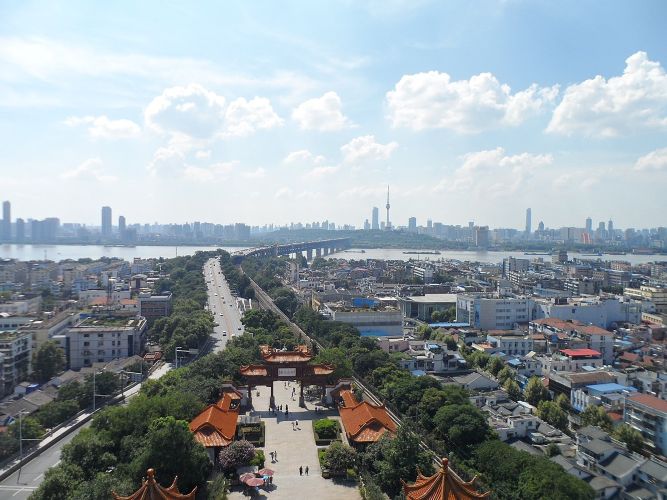
The Other Shore
I see clearly the other shore of this life’s sorrow,
I chase after it. It’s not that there is no bridge,
the bridge itself runs, shifts, even faster than the flowing water.
Better to have no bridge. Better to go straight,
using waves as beams to cross the river, using sinking as a way to climb over.
I see clearly the dilemma of this era:
the other shore is a mirror, reflecting the miserable sight of the present fleeing;
the other shore is a mirror that plucks wool, reflecting that I am a sheep.
At the moment of being abandoned, my mind wanders restlessly,
unable to focus on the event, unable to find a focal point,
even if it happens to myself.
I know the truth: Death is like a joke.
If the deceased is fortunate enough to be counted, is it equal to one or negative one?
No! From the depths of my heart I cry out: It must be zero!
When he returns with his mirror, emptied and cleared,
please respect the silence: the vastness of the circle.
Those who run fast and those who can barely move arrive at the same time,
but their endpoints are different; being deceived and knowing one is deceived
do not affect speed, yet the latter has a chance
to turn a full stop into a decimal point:
I see clearly the gains of this life,
and it might be possible, above nothingness,
to add a single feather, a drop of sweat…
I still might have a chance to climb over.
Crossing that point of self-will in time,
that point of certainty, using a single wave of the flowing water
as a bridge, breaking through the letter hope wrote to me…
perhaps it is only the post office’s seal.
But what is hope? Please let me keep the right to receive the letter,
if there is no other shore, I will sink.
***
彼岸
我看清了这一世的悲怆的彼岸,
我追赶。也并非无桥,
只是桥也奔跑,替换,甚至快过流水。
还不如无桥。还不如径直
以浪为济河之梁,以沉没为登越。
我看清了这时代的难题:
彼岸是一面镜子,照见当下溃逃的惨状;
彼岸是一面薅羊毛的镜子,照见我是羊。
在被背弃的那一刻我心猿意马,
不能集中于事件,找不到焦点,
即使发生在自己身上的。
我知道真相:死亡像玩笑一样。
如果死者有幸被统计,等于一或负一?
不!我深心呐喊:必须是〇!
当他带着他的镜子回归,清空,
请尊重无言:圆的广大。
跑得快的人和迈不动步的人同时抵达,
但终点不一样;被欺骗和知道被欺骗
并不影响速度,但后者有使句号
变成小数点的机会:
我看清了这一世的收获
而有可能在虚无之上
加一根羽毛、一滴汗……
我仍然有可能登越。
跨过时间中自我意志的那一点,
确知的那一点,以流水的一节波
为桥,冲破希望给我写的信……
或许只是邮局的封印。
但希望为何?请给我保留收信的权利,
如果没有彼岸,我会沉沦。
***
 Flames from Nowhere
Flames from Nowhere
Flames from nowhere, please fill this void.
The unwilling mountains, the lake straining to recall,
I try to retrieve the formation replaced by autumn geese,
yet not a trace remains. Some scattered friends,
resentful and indignant, under my forced attempts to reconnect,
wear expressions of struggle: withdrawing revisions, panic in the shadows;
Enough, enough, life has slipped into a mode of metaphor,
and I ought to play the interpreter, speaking of dreams to a stone.
Now the living and the dead blend together, redemption turns to reincarnation,
only the cost of pride is borne alone, that is the narrative of youth,
pressed by the weight of the future, the elderly can no longer remember the past clearly;
all that is vague, all that is weak, has found an open identity,
taking revenge with overt emptiness.
Thus the living also wear the faces of the dead,
I cannot tell: what kind of mistake have those people made,
who generate power from the molten lava of hell.
***
不知从何处来的的火焰
不知从何处来的火焰,请填补这一片虚空。
不甘心的山林,努力回忆的湖水,
我试图找回被秋雁取代的阵列,
却踪迹杳然。一些被打散的
愤愤不平的朋友,在我的强行联系之下
挣扎的表情,撤回修改,阴影中的惊惶;
罢了罢了,生活进入隐喻的模式,
我也该做个解人,对着石头说梦。
如今生者和死者混在一起,救赎变轮回,
只有骄傲的代价自己扛着,那是青春的叙事,
在未来的压迫之下,老人对过去记不清;
所有含混的,弱势的,都找到了公开的身份,
以公开的空无,报复。
因此生者也带上了死者的表情,
我无从判断:那些以地狱的熔岩发电的人
犯了怎样的错误。
***
 The Dark Side of the Moon
The Dark Side of the Moon
A Tribute: the first lunar soil retrieved by our country was collected from the dark side of the moon,
though Pink Floyd sang of it long before.
A faint chill comes over me, on the fullest day of the year.
No shadows, this small courtyard is submerged in the sea.
For a moment, my mother led my family and my younger brother’s family
to explore the sunken ship we share together,
breaking apart the Eucharist/mooncakes, savoring the ultimate taste.
Why is there a full moon every month, yet only the Mid-Autumn moon feels the roundest?
It is a vast cold platter, pieced together after the method of circle division
has inflicted a dismembering punishment on the year’s moonlight.
No wind blows. This is not the mainstream at our country’s dining tables,
people prefer to eat greasy foods that carry a sense of gratitude.
To speak of loneliness would be a bit overly sentimental,
in the name of reunion, we savor a weary kind of happiness.
There is no place more radical than this quiet countryside,
where every household quietly closes its doors after a moral dissection.
I linger on the memory: a momentary dizziness,
and a ache for my mother’s advanced age. How I wish
she could live another twenty years, or even forever.
If she could, then so could I. After all,
time in the shadows lasts longer, and I am more accustomed to it,
the dark side of the moon spreads on and on.
***
月之暗面
致敬:我国首次取回的月壤采自月之暗面,
尽管有平克•弗洛伊德歌唱在前。
我感到丝丝凉意,在一年中最圆满的一天。
没有阴影,小院沉浸在海底。
有那么一刻,母亲带领我家、弟弟家
探索我们共同的沉船,
掰开圣体/月饼,品尝至味。
为何月月都有满月,唯独中秋的月最圆?
是割圆术对着一年的月光施行磔刑后
拼凑起来的,广大的冷盘。
无风。这在我国的餐桌上不是主流,
人们更喜欢吃庆幸的油腻之物。
说孤独是有点矫情了,
以团圆的名义,品尝倦怠的幸福。
没有比这宁静的乡村更激进的地方,
家家都在道德解剖之后悄然合上。
我回味:短暂的晕眩,
为我母亲的高龄而心痛。多么希望
她再活二十年,乃至永远。
这样,我也可以。毕竟,
阴影中的时间更久、也更习惯,
月之暗面漫延。
___________________
Read: Accidental Rain – Poetry from China

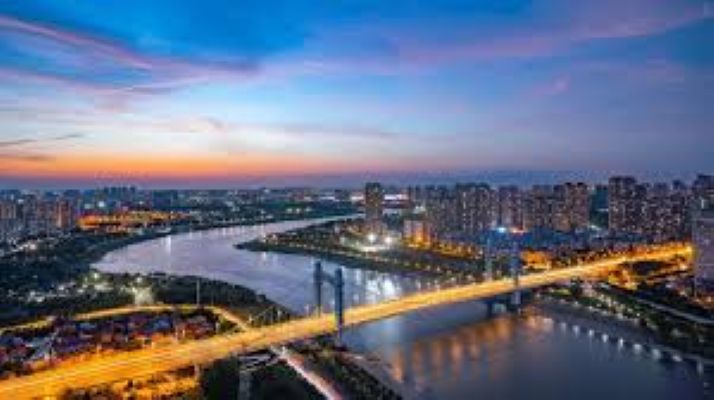 Flames from Nowhere
Flames from Nowhere 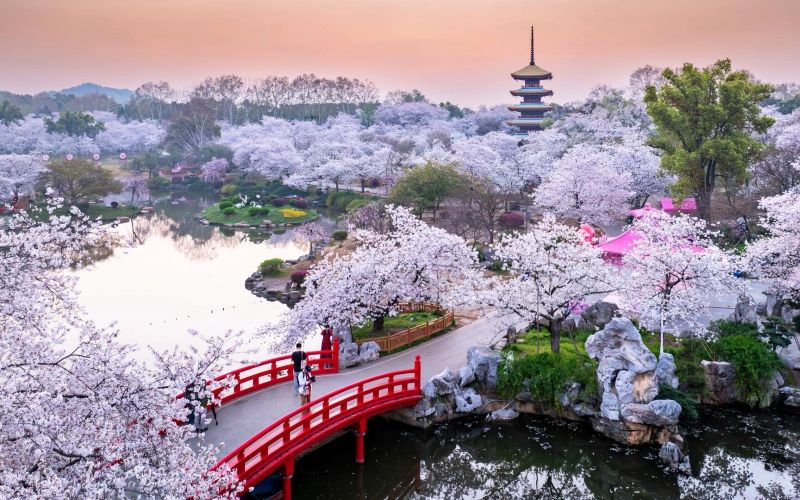 The Dark Side of the Moon
The Dark Side of the Moon 